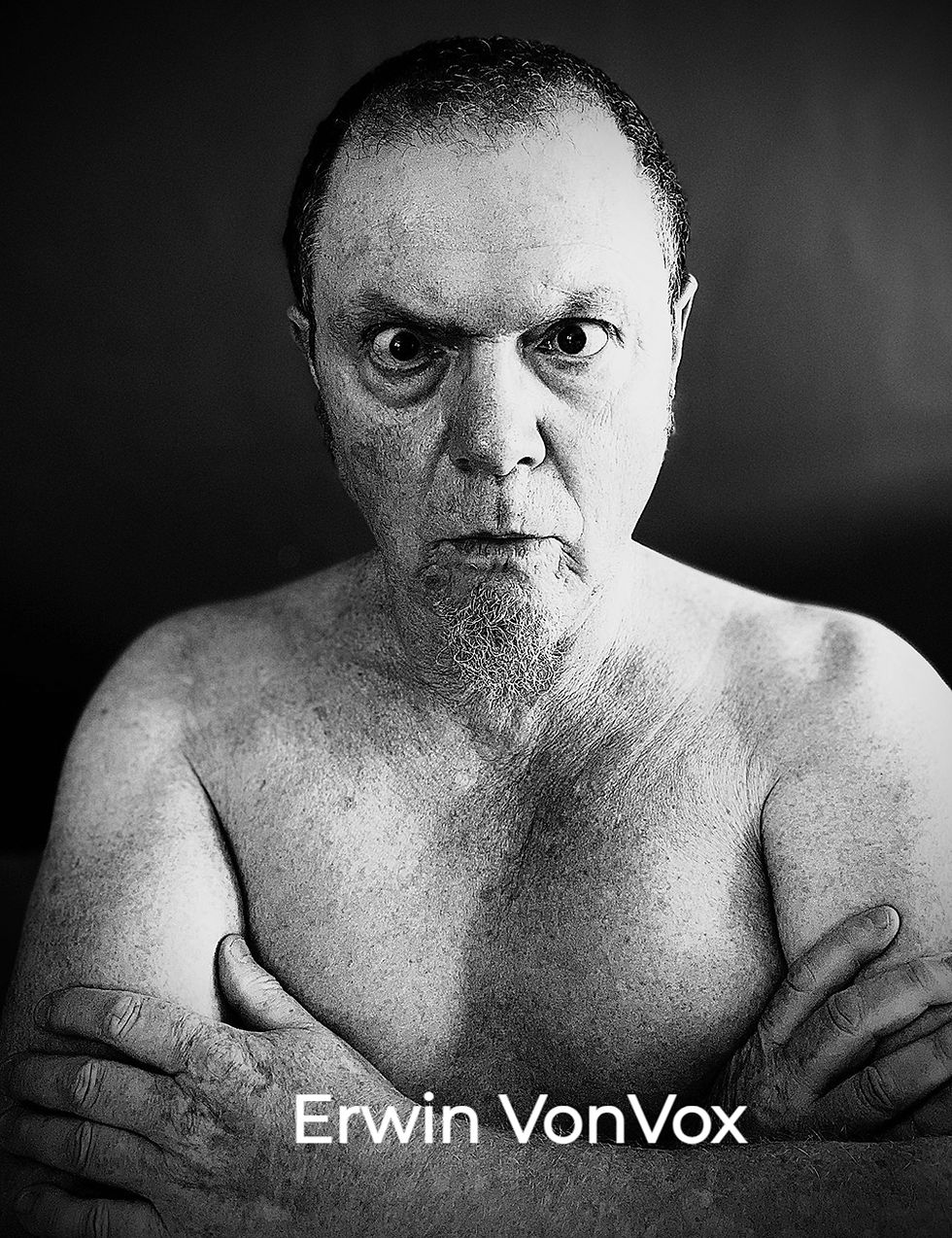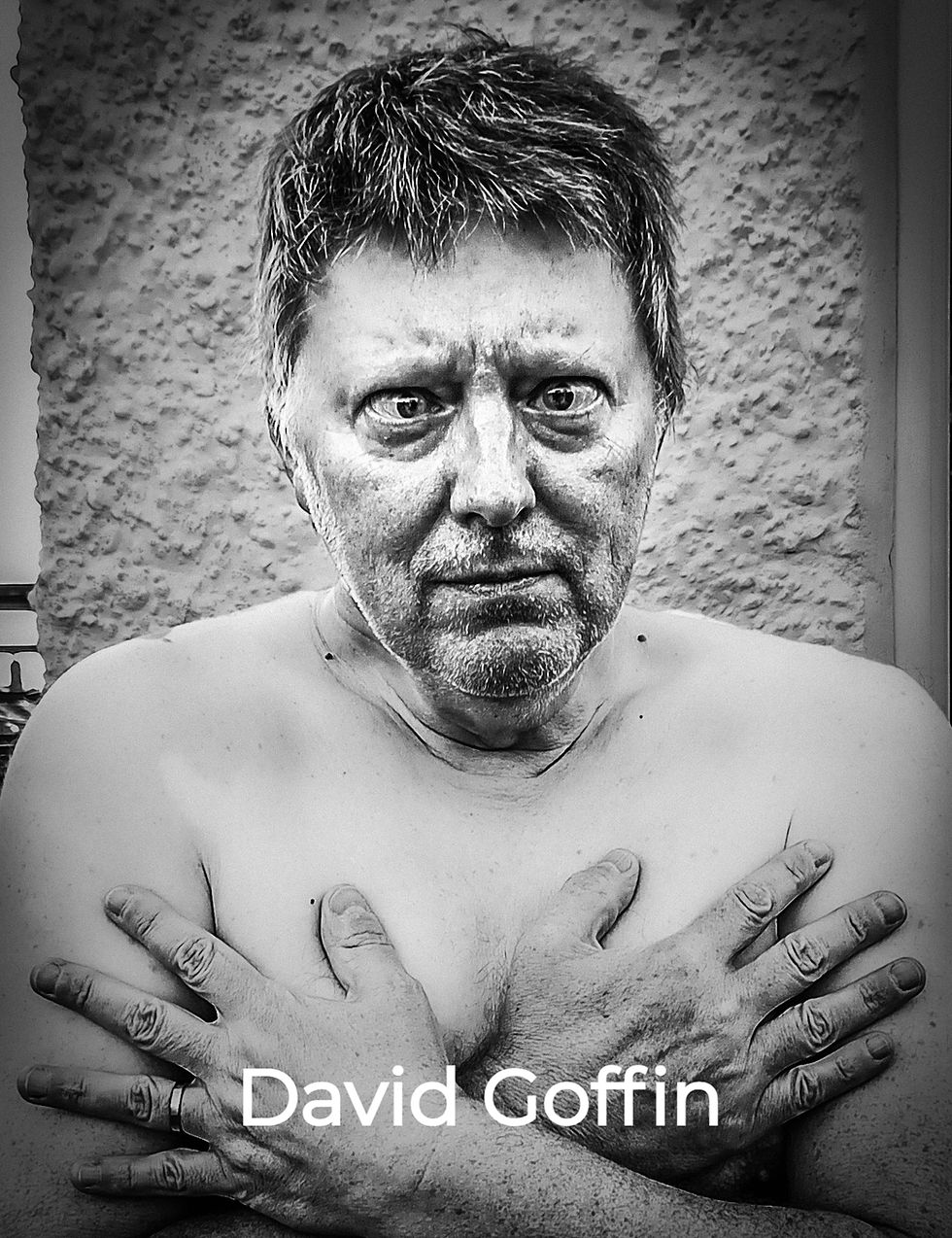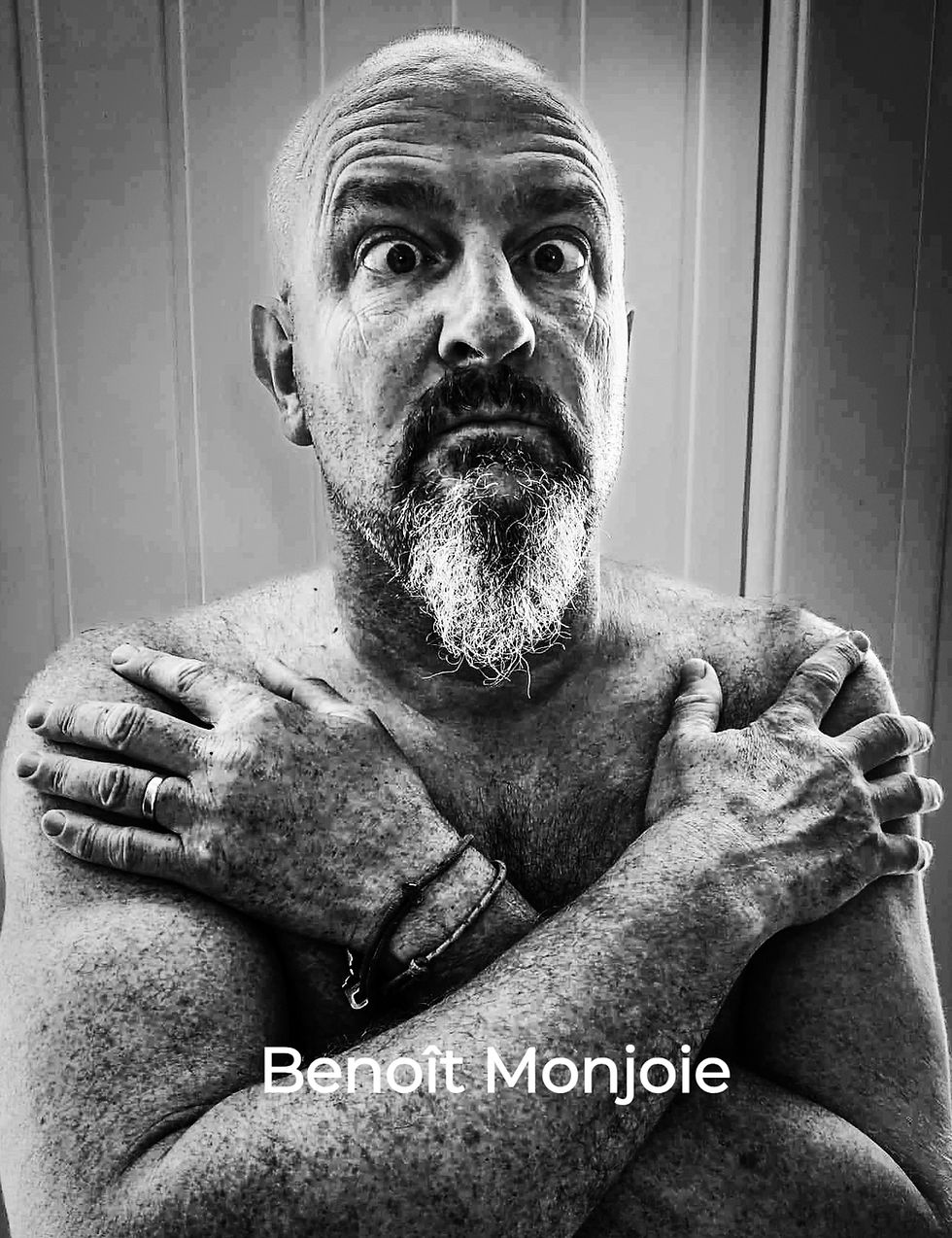Lady X MMXXIV - 30th anniversary of the release of the Home Recording album. Cross interview.
- David Goffin

- Aug 3, 2024
- 6 min read
Why this name “Lady x”, and who came up with it?

Erwin : I did, I suggested this name to David because first it sounded good, and then the “X” always sounds a little mysterious. Plus, we didn’t have a pretty girl in the group, which normally always attracts crowds. At the time, there was no Internet, so if people saw “Lady X” on a poster, they were intrigued and curious. So that meant more people at the concerts. Once the disappointment of not seeing the mysterious Lady X on stage was over, all that remained was to convince them with our music. David then also reminded me that Lady X was a character in the Buck Danny comic strip. And finally, the name was not attached to any particular music scene, so it was the perfect name for us.
David: I have always been attracted to comics. I had just come out of a group called Guinea Pig, after the character from the Edgar P. Jacobs book The Yellow Mark. Lady X is an enemy of Buck Danny. And I also think that Erwin liked the mysterious side of the name; he was the one who had the idea.
There were several formulas for this group I believe?

Erwin : Yes, we started as a duo David and I. We played with bands and the music was very different, but we struggled to play that music in live conditions. We were still moving away from New Wave, Gothic and those old things and we wanted to get back to even older things, blues, rock, etc…. But with the spirit of the times. I hope we can also release an album with this first version of the band, there were some interesting things.
David: Yes, there were other people involved in Lady X: Jean-Marie Ceulemans of the band Marketing Zo joined us at a point and Pascal Roufiange replaced Benoît for the group's last few concerts.
How did you meet?
Benoît: I met David in a guitar store in Namur, he was looking for a bassist to play that same evening. I didn't dare accept because it was my first time playing in a band. David contacted me again afterwards and introduced me to the others.

David: I met Erwin when I was taking my first steps on the guitar and he was touring the regional stages of Gembloux with his group Silicone. I had been invited by their technician Joël Nazé to come see them in rehearsal. So I came with my guitar, I made myself very small :) At the end of their rehearsal they invited me to jam, which we did. It was the first time I played in a band and we composed a song together. If I remember correctly, it was called ‘Your name is Violence’ – quite a program! Then, they invited me to play the piece with them during a concert (my very first, at the Scie Rose, in Gembloux). After that we continued to collaborate regularly on several projects.
I met Ben at JMG Music Shop, which was the place in Namur where everyone met in the 90s. He came to a rehearsal and it clicked straight away.
Guy was a friend of Erwin, a great drummer, very nice. There was a really good atmosphere in this group.
Erwin : At one of my first jobs, Guy Smal and I applied together in the same company for a different position. We used to do our daily jobs quickly and well, and then we talked about music and ended up playing together during the breaks….
I don’t really remember how I met David Goffin, it was a very long time ago. I was playing with the group Silicone and he came to attend a rehearsal though I don't know how? But maybe I'm wrong.
I met Benoît Monjoie through David, as for Erwin VonVox, that remains a mystery…
Why did you stop the band?

Erwin : The usual divergences that are part of group life. In this case, if I remember correctly, it was mainly a difference between David and Guy, our drummer. David wanted to go quickly and Guy was probably too much of a perfectionist. And I was torn between the two points of view. In short, that’s life.
David: We had recorded this first album without fuss, on a 4-track, in almost two days and called it aptly ‘Home Recording’. A year later, for the second one, we already had more possibilities, better equipment, we could add more instruments, the sound was clearer etc, etc. Great, except that with the proliferation of options, we started to hesitate about everything. Guy was quite a perfectionist and constantly wanted to redo his drum parts. After a while, I lost patience (I didn't have much at the time :)) and decided to abandon the project. I recorded my first solo album in the months that followed.
How did you record the album?
Erwin : David and I were already Home Studio enthusiasts at the time. I must have been among the first to use a cassette 4-track machine. It was a Fostex 250. I still have one. I regularly lent it to David who taught me how to use it better. David then moved on to a 4-track tape, which was a level above but I'll let him explain the rest.
David: Indeed, Erwin lent me his Fostex quite regularly at the time. Philippe Depireux also had one that he let me use. Then I had the opportunity to buy a Teac 4-track reel to reel recorder, which sounded better than the cassette ones. I also bought a Sony DAT digital stereo recorder. It is with this set up that we recorded this album.
David: For the technically minded, the details:
We did the basic takes on 4 tracks:
the drums (4 SM57(!) microphones for the kick drum, snare drum and two overheads) mixed in stereo on tracks 1 and 2.
Bass on track 3 and rhythm guitar on track 4.
We played together, as we used to play live, Guy in the living room of my home at the time and the three of us in a small room where the recorder and mixing boards were located.
I seem to remember that the bass was recorded directly on the desk and that Erwin didn't use an amp but had one of the first 'Sansamp' pedals.
We only recorded a single take of each song in the repertoire, starting again from zero with each mistake. You can hear Guy say at the end of one of the songs ‘this one is good’ :), I left it on the new mix.
Then Erwin and I mixed all the 'basic' tracks in stereo on a DAT cassette.
We transferred these stereo mixes to a new 4-track tape and we were left with two new tracks for the second guitar, the vocals and the solos. Tracks 1 and 2: drums-bass-1st guitar mix, track 3: second guitar and track 4: vocals and solo. Some guitar solos are cut abruptly because the singing had to resume :)
Why not go to a Pro studio?
Erwin : First it was a question of money, we didn’t have a producer and also we had the desire to do things ourselves. “Do it yourself” is the most important concept that punks gave us and I still stick to that philosophy to this day.
David: Too expensive and limiting. I’d had the chance to record at ICP Brussels with my previous band Guinea Pig a couple of years before but it was very expensive, often intimidating and ultimately quite frustrating. There was also change in the air, grunge was getting more popular and we had a desire for freshness that was perhaps lacking in the 80s.
How many CDs did you press at that time?
Erwin : 1,000 I think was the minimum number of albums we could press at the time.
David: yes, 1,000, I still have some left… 😂
What was the rock scene like in Namur at that time?
David: at the beginning of the 90s, there were already a few groups around Namur but the big explosion, if I can say so, took place thanks to the arrival of Jean-Marc Godfroid and his famous JMG Music store, opposite Cinema Eldorado. Every teenager who thought he was the future Kurt Cobain had the opportunity to try instruments and meet people in that shop. Some groups started there. JMG sponsored and provided PA for most of the concerts at the time, which also gave many musicians the opportunity to take their first steps. Some emerged and started careers thanks to JMG (Fred Lany, Jonas Jalay, Flexa Lyndo, among others)
Benoît: There weren't many people there if I remember correctly!
In what languages do you sing?
Erwin : David in English and I…uh…. After all, the Beatles had a terrible accent too!
David: in the pure spirit of the times, we didn't care a bit! But still… when you think that I was already an English teacher! I'm a little ashamed (oh and no, actually! 😀) To tell the truth, many of our contemporary groups sang in 'Yogurt', as we used to say!
Hector is in Flemish, why?
David: I was a young English and Dutch teacher, I was quite a fan of the Flemish comedian Urbanus, who had released a film of the same name.
Can you tell us about the guitars used?
Erwin : If I remember correctly, at the time I played a lot with my Gretsch Tennessee Rose and my Fender Stratocaster.
David: I mainly used a Japanese Fender Strat, which I still have, even if only 10% of it is original! I also had a Gibson Les Paul Custom Silverburst (now sold) but I also seem to hear my Fender Katana on 'Great'.




Comments